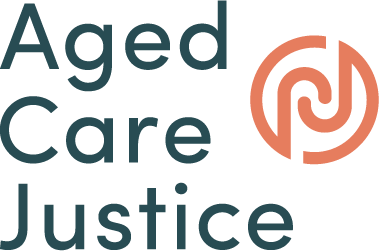Mother murdered by a nursing assistant
By Catherine Henry [1]
We successfully settled a negligence claim for our client who suffered mental harm (also known as ‘nervous shock’) when her mother was murdered by a nursing assistant at a facility in the Hunter Region.
To everyone’s great shock and horror, a nursing home worker injected insulin into three aged care residents where there was no medical need for insulin to be administered. Test results showed large levels of insulin in the blood that was not naturally occurring. Tragically, two of the victims died. In 2016, the employee was convicted of two counts of murder and one count of administering poison with intent to murder. In 2018, he appealed his conviction, but the NSW Court of Appeal dismissed that Appeal. He remains imprisoned and will not be eligible for parole until at least 2044.
Nursing home failed in its duty of care
The nursing assistant was entirely unsuitable to work in the aged care environment. Documents filed in the Court described the employee as having a lack of empathy, being a compulsive liar and craving attention. There had been complaints about his attitude and repeated unreliability. The employee had once posted a comment on a Facebook site which read: ‘I hate old people’.
The facility had no reasonable process to check his suitability as an employee. He had a substandard employment history, having been terminated by, or forced out of, several facilities where he worked previously. The required reference checks and enquiries about his previous employment were not made. Alarmingly, at some stage, he had been promoted to the position of ‘team leader’.
The facility was also negligent in failing to enforce its policies and procedures with respect to the administration of injectable insulin. There was a clear failure to ensure accurate records of the administration of injectable insulin were created, which should have allowed proper stocktakes and monitoring. The facility also neglected to keep the insulin properly and securely stored, which allowed the murderer easy access and opportunity.
Families left shattered
Our client’s mother was of advanced age and frail. She relied on staff for the provision of food, safe accommodation, care and management, including the appropriate administration of required medication.
The families of the two residents who were killed brought proceedings for nervous shock following the death of their loved ones. The major basis for the case against the nursing home was that it was vicariously liable for the wrongful intentional acts of its employee. The nursing home had a non-delegable duty of care arising as a result of the nursing assistant’s position of authority, power, care, intimacy and supervision over the residents.
What more can be done?
Catherine Henry Lawyers made submissions to the Royal Commission into Aged Care Quality and Safety (the Commission) that a mandated skill mix is required to prevent elder abuse, including that a ‘staffing methodology’ should be adopted for all aged care facilities. A skill mix requirement of 30% Registered Nurses, 20% Enrolled Nurses and 50% Assistants in Nursing is the evidence-based minimum care requirement to ensure safe residential and restorative care.
Our submission to the Commission on workplace issues in the aged care sector asked the Australian Government to introduce mandatory regulations to ensure suitable recruitment practices and proper background checks are conducted for every new employee.
Common law negligence claims are a valuable tool in the struggle for justice, to protect some of Australia’s most vulnerable, frail and aged citizens.
Legal action undertaken by families has the potential to promote quality and safety by imposing sanctions where there are breaches of protocols, guidelines and accepted competent professional practices. Litigation can be utilised to achieve outcomes for families and to put facilities (and their insurers) on notice that substandard care and treatment will not be tolerated in Australia.
Get Help
If you or someone you know needs legal assistance, we encourage you to fill out ALARM’s GetHelp form on our website at www.ALARM.ORG.AU; or contact ALARM on (03) 9016 3248; or email us on info@agedcarejustice.org.au. You may then select, or, if you wish, we will direct you to, one of our Allied Law Firms for an initial meeting and advice, at no cost to you. Thereafter, you can decide whether to proceed with a formal legal complaint. If you do wish to proceed, costs arrangements, if any, will need to be discussed, and agreed, with the firm.
Sources:
[1] Health & Aged Care Lawyer, Principal, Catherine Henry Lawyers Pty Limited, Sydney; ALARM Volunteer Consultant.
Disclaimer:
The views expressed in this article are the views of the author. The contents of this article are for general information purposes only and do not constitute legal advice, are not intended to be a substitute for legal advice, and should not be relied upon as such. Legal advice should be sought prior to any action being taken in reliance on any of the information. If you are in need of legal advice and/or assistance about aged care matters, please seek legal advice directly or via ALARM’s GET HELP form on its website: www.agedcarejustice.org.au.
